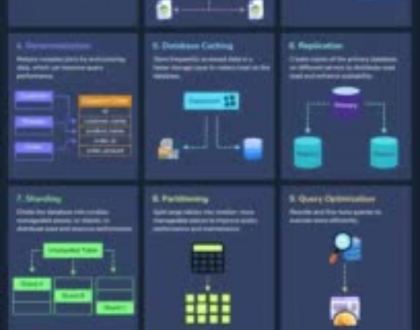Security Best Practices in API Development
APIs (Application Programming Interfaces) have become the backbone of modern software development, enabling seamless interactions between different applications and systems. However, as the usage of APIs continues to expand, ensuring robust security measures within API development has become critically important. Let’s delve into the essential security best practices in API development to uphold data integrity and safeguard against vulnerabilities.
![]()
https://www.freepik.com/premium-photo/woman-use-laptop-with-api-word-vr-screen-multimedia-icons-internet-technology-concept_32116453.htm#query=api%20development&position=16&from_view=search&track=ais&uuid=9dd998f8-92c7-4006-af1d-f173faee679e
Introduction to API Development
APIs serve as intermediaries, allowing software systems to communicate and exchange information. They streamline processes, enable innovation, and foster integrations across various platforms. As APIs handle sensitive data, ensuring their security is paramount to prevent unauthorized access, data breaches, and potential cyber threats.
Understanding API Security
API security encompasses a range of strategies and protocols designed to safeguard APIs against malicious attacks and vulnerabilities. It involves implementing measures that ensure data confidentiality, integrity, and availability while maintaining privacy and trust between systems.
Importance of API Security
The significance of API security lies in protecting sensitive information, including user data, credentials, and critical business functionalities. Any vulnerability within an API can potentially lead to devastating consequences, compromising the integrity of data and undermining trust in the system.
Common Threats in API Development
Numerous threats pose risks to API security, such as injection attacks, broken authentication, insecure data storage, and inadequate logging and monitoring. Understanding these threats is crucial to developing effective security protocols.
Best Practices for Securing APIs
Authentication and Authorization
Implementing robust authentication mechanisms, such as OAuth or API keys, along with granular authorization controls, ensures that only authorized users or applications can access specific resources.
Data Encryption and Validation
Utilizing encryption methods like TLS (Transport Layer Security) for data transmission and validating inputs and outputs helps prevent data exposure and manipulation.
Implementing Rate Limiting and Throttling
Enforcing rate limits and throttling controls prevents abuse and overload on APIs, reducing the risk of denial-of-service attacks.
API Logging and Monitoring
Comprehensive logging of API activities and continuous monitoring for anomalies aids in identifying and mitigating security breaches promptly.
API Lifecycle Management
Securing APIs throughout their lifecycle, from design and development to deployment and decommissioning, ensures consistent security measures.
Testing and Validation of APIs
Regular security audits, penetration testing, and validation processes help identify vulnerabilities early on and ensure robustness against evolving threats.
Third-Party Integration Security
Carefully vetting third-party integrations and imposing strict security standards when integrating external services mitigates risks associated with potential vulnerabilities in external APIs.
Documentation and Security
Comprehensive and accessible documentation of API security protocols helps developers and users understand and implement best practices effectively.
Future Trends in API Security
As technology evolves, future trends in API security may include advancements in AI-driven threat detection, blockchain for authentication, and enhanced standards for secure API design.
Conclusion
Security in API development is not an afterthought but a fundamental aspect that demands attention throughout the development lifecycle. Implementing robust security measures ensures data integrity, protects against vulnerabilities, and fosters trust among users and developers.
Frequently Asked Questions (FAQs)
- What are the primary security threats to APIs?Security threats to APIs include injection attacks, broken authentication, insecure data storage, and inadequate logging and monitoring.
- Why is authentication crucial in API security?Authentication ensures that only authorized users or applications access specific resources, preventing unauthorized access.
- How often should API security audits be conducted?Regular security audits and testing should be conducted, ideally as part of the development lifecycle and whenever significant updates occur.
- What role does documentation play in API security?Comprehensive documentation helps users and developers understand and implement best practices effectively, enhancing overall security.
- Are there emerging trends in API security to watch out for?Emerging trends in API security may include AI-driven threat detection, blockchain authentication, and enhanced standards for secure API design.
Recommended Posts

12 Proven Ways to Improve Database Performance
April 29, 2025


